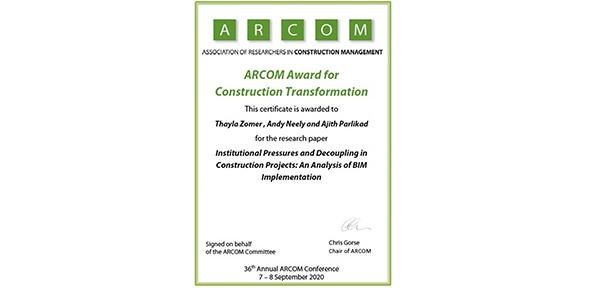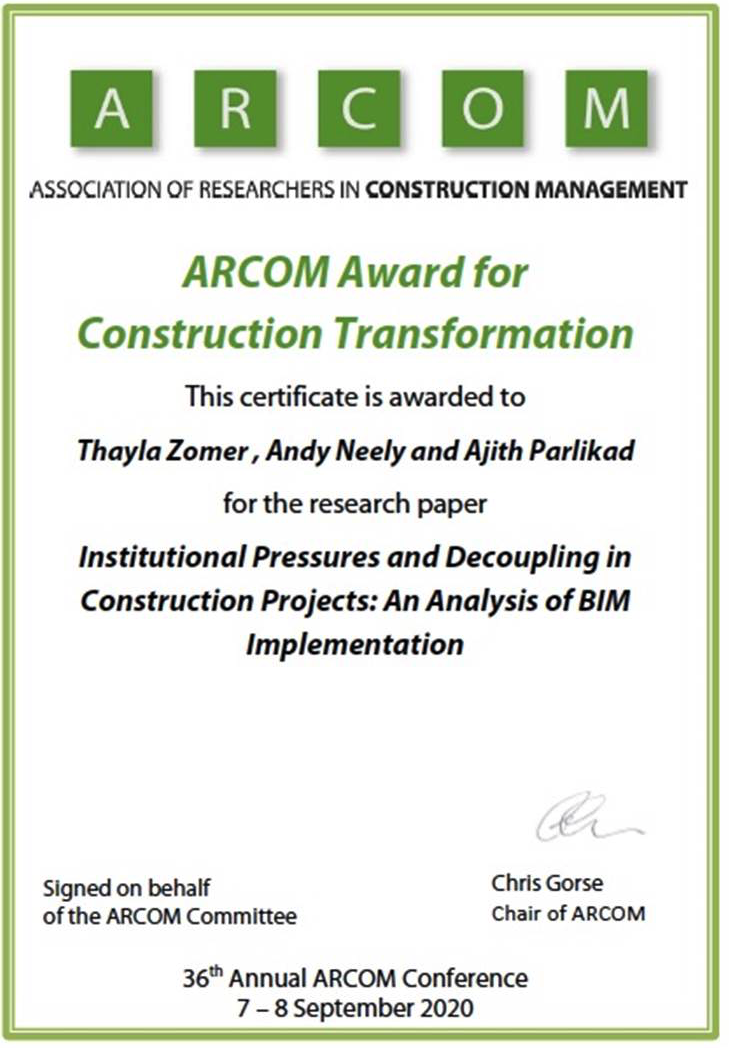
Submitted by Angela Walters on Sat, 12/09/2020 - 15:13
Blog: From Thayla Zomer on this paper and research
Abstract
Most existing research on built environment policy has focused on the independent variable - policy formulation - and assumed that the prescriptions that follow are readily accepted by a multitude of stakeholders. Less focus has been placed on the dependent variable - the projects where those policies are applied. Studies on practical implementation of new policies, such as Building Information Modelling (BIM) mandates, however, have suggested that implementation has not happened as envisaged. In this paper, by drawing on institutional theory, specifically the concept of decoupling, we adopt the perspective of the implementers of built environment policy approaches to explore how projects respond to the environmental pressure of a BIM mandate and the implications of such responses to the wider transformation of the sector. Through an inductive research design and by conducting multiple case studies on BIM Level 2 projects in the United Kingdom, we observed that two variances of a decoupling phenomenon are happening across projects - policy - practice decoupling and means-end decoupling. Our findings revealed that the decoupling phenomenon manifested in the responses employed by projects when implementing the 'new working practices' part of the policy mandate. Those responses included non-implementation of practices, violation of implementation and assimilation of the practices but not their meaning. Underlying reasons for such responses were also identified. By adopting an implementers' perspective on built environment policy design and implementation, we contribute to the construction management literature by providing new insights on the slow transformation of the sector, differing from what is generally envisaged by built environment policies. Our findings call attention to the consideration of implementers' prior knowledge, by institutional designers, when designing policy.
Theme
People
Citation
Institutional pressures and decoupling in construction projects: an analysis of Building Information Modelling implementation. Proceedings of the 36th Annual ARCOM Conference, 325-334. https://doi.org/10.17863/CAM.58043

